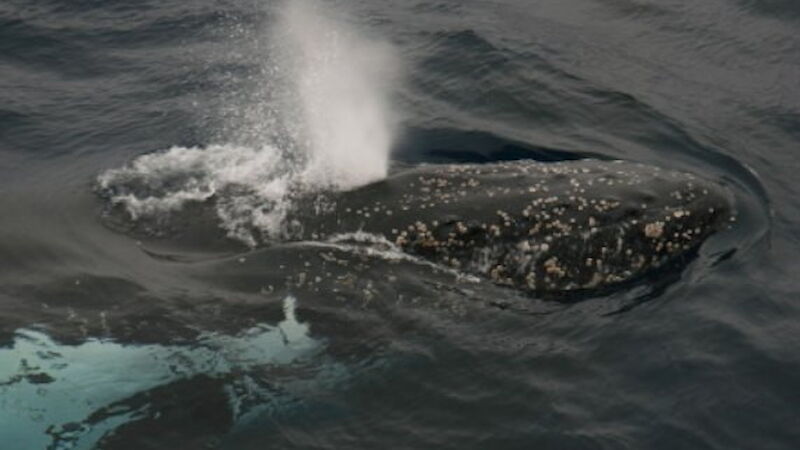Environment Protection Minister, Peter Garrett, today launched the third National Whale Day for the International Fund for Animal Welfare at the La Perouse Museum in Sydney.
“With just weeks to go before the next International Whaling Commission meeting in Morocco, National Whale Day is a reminder of the threats that the world’s whales and cetaceans face and the importance of taking action to ensure their protection,” Minister Garrett said.
“This day is important because it raises our awareness of the many threats faced by whales — ship strikes, entanglements, strandings, habitat destruction, climate change and, of course, so called ‘scientific’ whaling — and celebrates the start of the season when these great creatures appear off our shores.
“Once nearly driven from our oceans by whaling, there are some welcome signs of recovery in whale populations thanks to the IWC’s moratorium on commercial whaling and the establishment of significant whale sanctuaries in the Indian and Southern Oceans.
“But, especially on World Environment Day, it is sobering to remember that globally there are fourteen species of whale still listed as threatened, five of those species — the blue, southern right, sei, fin and humpback whales — are currently listed under Australian environment law as nationally threatened.
“The Australian Government is committed to continuing the fight for the long lasting protection of whales and we will continue to work hard in the lead up to the annual IWC meeting in Agadir to pursue our fundamental conservation objectives.
“Today I’m launching a new Twitter account — PGwhalewatch — that will provide regular updates on the work the Australian Government’s doing to protect whales. I encourage you to follow my tweets in the lead up to and during the IWC meeting in Morocco later this month,” he said.
The Minister also announced the recipients of more than $668,000 of non-lethal whale and dolphin research funding.
“The projects funded by the Australian Government will utilise the most powerful non-lethal research techniques to build our scientific knowledge of whales and dolphins not only in our backyard but across the Pacific and Indian Oceans,” he said
“The Government is committed to advancing non-lethal whale research nationally, regionally and globally.
“These projects are funded through the Government’s six-year $32 million package of non-lethal whale research.
“Nationally, the $440,000 three-year Bill Dawbin Postdoctoral Fellowship for applied strategic cetacean research has been awarded to Murdoch University Marine Scientist, Dr Amanda Hodgson,” Mr Garrett said.
Dr Hodgson’s project will use innovative methods and technology to monitor marine mammal abundance, distribution and habitat use, including miniature remotely controlled aircraft, equipped with cameras and sensors to conduct unmanned aerial marine mammal surveys.
“Dr Hodgson’s cutting edge research will be investigating whether this new technology can improve current manned aerial survey methods by eliminating human risk, increasing accuracy of detection, location and identification of species, and enabling surveys in remote regions where manned surveys are impossible,” Mr Garrett said.
The Minister also announced that the new Indo-Pacific Cetacean Research and Conservation Fund will provide $228,000 for four three-year projects in the waters off Papua New Guinea, Pakistan, Fiji and Bangladesh.
The following projects have been funded:
- The development of a long-term cetacean conservation and management plan that will increase knowledge of the diversity of cetaceans in Papua New Guinea. This project will undertake whale surveys in the Bismarck Sea will help develop the practical field research skills of Papua scientists.
- Surveys that will aid the conservation of whale and dolphin populations in the North Arabian Sea, along the Balochistan Coast in Pakistan determining their abundance, diversity, and seasonal habitat use. The surveys will help in managing threats to cetaceans in this region.
- A study that will document the migration patterns of endangered Oceania humpback whales in Fijian waters and establish a long-term dataset for monitoring trends in humpback whale migration.
- A study that will assess the abundance, ranging patterns, habitat selection and fisheries interactions of Indo-Pacific humpback and Indo-Pacific bottlenose dolphins in coastal waters of the Bay of Bengal, Bangladesh.
“As well as delivering important whale science, all these non-lethal projects have a particular focus on capacity building and support for conservation management in developing countries.
“Projects like these demonstrate once again that in the 21st Century we no longer need to kill these magnificent creatures to learn more about them,” he said.

